Is HVAC maintenance really necessary every year?
Keeping your HVAC system running smoothly is crucial for your comfort, especially during extreme weather. Many homeowners wonder if HVAC maintenance is really necessary every year, and the answer is yes. Regular maintenance ensures that your heating and cooling systems work efficiently and safely. Here’s why you should consider annual HVAC maintenance as essential.
Benefits of Regular HVAC Maintenance
Annual HVAC maintenance provides numerous advantages:
- Increased Efficiency: A well-maintained system runs more efficiently, which can lower your energy bills.
- Extended Lifespan: Regular servicing can prolong the lifespan of your equipment, saving you money in the long run.
- Improved Air Quality: Cleaning and changing filters can reduce allergens and ensure your indoor air quality is safe.
- Identifying Problems Early: Routine checks can uncover minor issues before they become costly repairs.
- Safety: Annual inspections help ensure that your system is operating safely, reducing the risk of fire or carbon monoxide poisoning.
What Does HVAC Maintenance Include?
An HVAC maintenance check typically includes a variety of tasks performed by a trained technician to ensure everything operates properly:
- Filter Replacement: Dirty filters restrict airflow, forcing the system to work harder.
- Cleaning Components: Coils, fans, and ducts should be cleaned to remove dust and debris.
- Checking Refrigerant Levels: Proper refrigerant levels are crucial for your air conditioning unit.
- Inspecting the Thermostat: Ensuring the thermostat is functioning properly helps maintain comfortable temperatures.
- Examining Electrical Components: The technician checks wiring and other electrical components for safety and functionality.
How Often Should You Schedule Maintenance?
Most experts recommend scheduling HVAC maintenance at least once a year. It’s also wise to have separate maintenance checks for both your heating and cooling systems, usually in the spring and fall. This ensures both units get the attention they need.
The Cost of Neglecting HVAC Maintenance
Neglecting HVAC maintenance can lead to several issues that may end up costing you much more than the maintenance itself. Here are some consequences of skipping annual checks:
- Higher Energy Bills: An inefficiency in your system means wasting energy, leading to increased utility bills.
- Frequent Breakdowns: Lack of maintenance can result in breakdowns during peak seasons when you need the system most.
- Emergency Repairs: Minor issues can develop into major problems, costing you significantly more to repair.
- Decreased Comfort: Without maintenance, your system may struggle to maintain the desired temperature.
When to Consider Going Beyond Annual Maintenance
In some cases, you might need to think about more than just annual maintenance:
- If you notice a significant increase in energy costs.
- If your system cycles on and off frequently.
- If your home has different temperatures in different rooms.
- If you hear strange noises coming from the unit.
Finding a Qualified HVAC Technician
To make the most of your annual maintenance, finding a reliable HVAC technician is essential. Look for someone with experience and good reviews. You can check resources like Angie’s List or HomeAdvisor for recommendations.
Annual HVAC maintenance is not only beneficial; it is necessary. You invest in comfort and safety by keeping your system running efficiently and effectively. Don’t wait for problems to arise—schedule your maintenance today and enjoy peace of mind!
The benefits of annual HVAC inspections for energy efficiency
When it comes to your home, keeping a comfortable indoor environment is a top priority. Regular HVAC inspections play a crucial role in maintaining that comfort and ensuring your heating and cooling systems operate efficiently. If you are wondering whether annual HVAC inspections are truly necessary, the answer is a resounding yes. Let’s dive into the benefits they bring, especially regarding energy efficiency.
Understanding Energy Efficiency
Energy efficiency refers to using less energy to provide the same service. In the context of HVAC systems, it means having equipment that heats or cools your home without wasting energy. Annual inspections help achieve this optimization, allowing you to enjoy a comfortable living space while saving on energy bills.
Benefits of Annual HVAC Inspections
Here are significant benefits you can gain from regular HVAC inspections:
- Improved Energy Efficiency: During an inspection, a qualified technician evaluates all components of your HVAC system. Cleaning coils, checking refrigerant levels, and calibrating controls ensures your system runs at peak efficiency. An efficient system uses less energy, which translates to lower utility bills for you.
- Extended Lifespan of Equipment: Just like any machine, HVAC systems benefit from regular maintenance. Consistent inspections can help identify minor issues before they turn into costly repairs, prolonging the lifespan of your equipment and reducing the need for early replacement.
- Enhanced Air Quality: Dust, dirt, and mold buildup can negatively impact indoor air quality. Regular inspections involve cleaning and replacing filters, which helps ensure the air you breathe in your home is clean and healthy. This is especially important for households with allergy sufferers.
- Prevention of Breakdowns: HVAC systems can break down unexpectedly, often during peak demand seasons. Scheduling annual inspections helps identify potential problems before they cause a system failure, saving you the frustration and expense of emergency repairs.
- Optimized System Performance: A well-maintained HVAC system not only consumes less energy but also delivers better performance. This means you can enjoy consistent temperatures and a more comfortable environment throughout your home.
How Often Should You Schedule Inspections?
The consensus among HVAC professionals is that annual inspections are indeed essential. Scheduling your inspection at the start of the heating or cooling season can help ensure that your system is ready for the demands ahead.
What to Expect During an HVAC Inspection
Knowing what goes into an HVAC inspection can help you understand its value better. Here’s a typical checklist that a technician may follow:
| Inspection Task | Description |
|---|---|
| Checking Thermostat Settings | Ensure your thermostat is calibrated for accurate temperature readings. |
| Ductwork Inspection | Inspect for leaks or obstructions that can hinder airflow. |
| Cleaning Components | Clean coils, blower components, and filters to remove dirt and buildup. |
| Checking Refrigerant Levels | Ensure proper refrigerant levels for optimal efficiency. |
| Electrical Connections | Inspect and tighten all electrical connections to ensure safety and efficiency. |
Choosing the Right HVAC Professional
When scheduling an inspection, it’s vital to choose a qualified HVAC technician. Look for licensed professionals with good reviews and recommendations. Websites like Energy Star provide resources to help you understand efficiency ratings and local contractors.
Ensuring your HVAC system is regularly checked not only protects your investment but also promotes a greener home. By focusing on energy efficiency through annual inspections, you can enjoy the comfort of your home while keeping operational costs lower.
Annual HVAC inspections are indeed necessary for energy efficiency. They help keep your system running smoothly, extend its life, and save on energy costs. Don’t wait until problems arise; schedule your inspection today!
Common issues that arise from neglecting HVAC maintenance
When it comes to keeping your home comfortable, your HVAC system plays a crucial role. However, many homeowners overlook the importance of regular maintenance. Neglecting HVAC upkeep can lead to various problems that not only affect comfort but also your wallet. Understanding these common issues can help you realize why annual HVAC maintenance is essential.
One of the primary issues arising from a lack of HVAC maintenance is reduced efficiency. Over time, dust and debris accumulate in your system. This buildup can hinder airflow, making your HVAC unit work harder to maintain your desired temperature. According to the U.S. Department of Energy, when the airflow is restricted, your system can lose up to 20% of its heating and cooling efficiency. Poor efficiency means higher energy bills, which can strain your budget.
Additionally, neglecting maintenance can lead to frequent breakdowns. When components are not regularly inspected or serviced, wear and tear can go unnoticed. For example, worn-out belts or dirty filters can put added stress on your system. As a result, you may find yourself facing unexpected repairs or even expensive replacements. A study from the Consumer Product Safety Commission shows that HVAC system failures can lead to costly repairs averaging between $200 to $2,000, depending on the problem.
Another serious issue stemming from poor maintenance is indoor air quality (IAQ). HVAC systems not only cool or heat your home but also filter the air you breathe. When filters are clogged with dust and allergens, these harmful particles are circulated throughout your living space. This can exacerbate allergies and respiratory issues, posing a danger to your family’s health. The Environmental Protection Agency (EPA) highlights that poor air quality can lead to worsened asthma and other health issues, especially in vulnerable populations.
Furthermore, neglecting HVAC maintenance can increase the risk of system failure during peak seasons. Imagine your air conditioning breaking down on the hottest day of summer or your heating system failing in the middle of winter. Without proper attention, these situations can leave you uncomfortable during extreme weather. An annual check-up provides peace of mind and ensures your system is prepared for the demands of each season.
Here’s a summary of common issues that arise from neglecting HVAC maintenance:
- Reduced Efficiency – Dust and debris hinder airflow, causing higher energy bills.
- Frequent Breakdowns – Wear and tear lead to unexpected repairs and replacements.
- Poor Indoor Air Quality – Clogged filters circulate allergens, affecting health.
- System Failures – Increased risk during peak heating and cooling seasons.
Neglecting your HVAC system not only leads to discomfort but also impacts your finances and health. Regular maintenance can prevent these issues, save you money in the long run, and ensure a safe living environment for you and your family. By investing in annual HVAC maintenance, you’re investing in the longevity of your system and your home’s comfort.
To keep your HVAC in top shape, consider reaching out to reputable HVAC service providers in your area. For reliable information and comprehensive services, check The ACHR News for industry news and tips. Regular service not only prolongs the lifespan of your HVAC system but also ensures you’re not left in the heat or cold during the most inconvenient times.
How regular HVAC maintenance can extend the lifespan of your system
Regular HVAC maintenance plays a crucial role in ensuring your heating, ventilation, and air conditioning system operates efficiently and lasts longer. Many homeowners overlook this essential service, assuming that their systems will work just fine without a yearly checkup. However, neglecting HVAC maintenance can lead to a host of problems, including reduced efficiency, costly repairs, and a shortened lifespan for your unit.
Let’s explore how regular maintenance directly impacts the longevity of your HVAC system.
Why Regular Maintenance is Essential
Just like your vehicle requires routine checkups to keep it running smoothly, your HVAC system needs attention too. Here are some reasons why annual maintenance is essential:
- Improves Efficiency: Regular maintenance ensures that your HVAC system runs at peak efficiency. Dirty filters, coils, and ductwork can hinder airflow and make your system work harder, increasing your energy bills.
- Extends Lifespan: A well-maintained system can last up to 15-20 years or more, while a neglected system may fail within a decade. Investing in maintenance extends the life of your unit significantly.
- Reduces Repairs: Regular inspections help detect potential issues before they escalate. Early intervention through routine maintenance can save you from expensive repairs down the road.
- Enhances Safety: HVAC systems can pose safety risks if not properly maintained. For instance, a malfunctioning furnace can leak carbon monoxide, a dangerous gas.
- Improves Air Quality: HVAC maintenance includes cleaning and replacing filters, which helps in reducing allergens, dust, and other pollutants in your home’s air.
What Maintenance Includes
When you schedule annual HVAC maintenance, you should expect a comprehensive service that covers several key tasks:
- Inspection: Technicians will inspect your entire system to identify areas of concern.
- Cleaning: Dust and dirt buildup can cause issues. Cleaning components like coils and ducts is critical for optimal performance.
- Filter Replacement: Replacing your air filter keeps the air clean and allows your system to operate efficiently.
- Checking Refrigerant Levels: Ensuring correct refrigerant levels keeps your system cool and energy-efficient.
- Tightening Electrical Connections: Loose connections can cause breakdowns, so tightening these is crucial for safety.
- System Calibration: Technicians will calibrate your thermostat and ensure your system is functioning as it should.
Cost-Effectiveness of Regular Maintenance
While annual maintenance incurs a cost, it is minimal compared to the potential expenses of major repairs or unit replacement. According to the U.S. Environmental Protection Agency, regular maintenance can reduce the need for repairs by up to 95%. Looking at it from this angle, investing in maintenance not only prolongs the lifespan of your HVAC system but actually saves you money in the long run.
Choosing the Right HVAC Professional
Selecting a qualified HVAC technician is essential for effective maintenance. Look for professionals with certifications and positive customer reviews. The Air Conditioning Contractors of America (ACCA) provides resources for finding reputable HVAC service providers in your area.
| Maintenance Task | Frequency |
|---|---|
| Filter Replacement | Every 1-3 months |
| Professional Maintenance | Yearly |
| Coil Cleaning | Annually |
| Thermostat Calibration | Yearly |
By adhering to a strict maintenance schedule, you can ensure your system remains efficient and functional. Don’t wait until it’s too late—take action now!
Regular HVAC maintenance is not just a suggestion; it is a necessity. From preventing costly repairs and improving efficiency to enhancing your home’s comfort, the benefits are extensive. By investing in annual maintenance, you are not only protecting your investment but also ensuring a healthier, more comfortable living environment for you and your family.
For more information about HVAC maintenance and its long-term benefits, check out Energy Star for expert tips.
Signs that indicate your HVAC system needs attention
When it comes to keeping your home comfortable, an efficient HVAC system plays a critical role. However, sometimes the system shows signs that it needs attention. Recognizing these signs can save you money and prevent extensive repairs. Here are some common indicators that your HVAC system might need servicing.
One of the first signs to dismiss is unusual noises. If your HVAC unit starts making strange sounds, such as grinding, squealing, or rattling, it could be a sign of mechanical issues. These noises often indicate that components are loose or worn out and might require professional inspection.
Another sign to consider is if you notice uneven heating or cooling in your home. If certain rooms are too hot or too cold compared to others, your HVAC system may not be functioning properly. This imbalance can result from issues such as blocked vents, leaky ductwork, or a malfunctioning thermostat. Addressing these concerns is essential for maintaining comfort in your living space.
Your energy bills may start to rise unexpectedly, signaling a problem with your HVAC system. If you notice a significant spike in energy costs without a change in usage, it may indicate that your system is working harder than it should. This inefficiency can stem from dirty filters, lack of maintenance, or other underlying problems. It’s wise to have a professional evaluate the system if you see this trend.
It’s also important to pay attention to airflow. If you experience weak airflow from your vents, it could suggest a blockage in the ducts or a failing blower motor. Poor airflow not only affects comfort levels but can also lead to increased wear and tear on your system, potentially resulting in costly repairs.
A pungent odor coming from your HVAC system can signal a serious issue. If you notice burning smells or any strange odors, shut the system off immediately and call for assistance. These smells could indicate overheating components or even electrical issues that require immediate professional attention.
Another noticeable sign is humidity problems. An efficient HVAC system should effectively manage humidity levels in your home. If you find that your space feels excessively humid or dry, it’s a sign that your system may not be functioning correctly. Improper humidity levels can lead to discomfort and could foster mold growth.
Regularly changing your air filters is crucial for the optimal functioning of your HVAC unit. If you forget to change filters and notice an accumulation of dust around your home, or if the filters look clogged, it’s definitely time for a change. Clogged filters can restrict airflow and force your system to work harder, potentially leading to breakdowns.
Keep a close eye on your system’s age as well. If your HVAC unit is approaching the end of its expected lifespan, which generally ranges from 15 to 25 years depending on the type, it may start requiring more frequent repairs. Consider having a professional assess its condition and discuss whether it’s worth investing in repairs or if a replacement might be a more cost-effective solution moving forward.
Taking these signs seriously ensures that your HVAC system runs efficiently and provides comfort in your home. For a detailed understanding of HVAC maintenance, you can visit AHRINET or explore best practices at Energy.gov.
By staying attuned to your HVAC system’s performance, you can address minor issues before they escalate into major problems. Routine maintenance, including inspections and cleanings, can prolong the life of your system while providing you with the comfort you need in your home.
| Sign | Possible Cause | Recommended Action |
|---|---|---|
| Unusual Noises | Mechanical issues | Schedule professional inspection |
| Uneven Heating/Cooling | Blocked vents, duct issues | Check and adjust vents, inspect ductwork |
| High Energy Bills | System inefficiency | Evaluate system, consider maintenance |
| Weak Airflow | Blocked ducts or blower issues | Inspect ducts and blower motor |
| Strange Odors | Overheating components, electrical issues | Shut off system and call for help |
| Humidity Problems | Poor HVAC performance | Examine system efficiency |
| Dirty Filters | Clogged filters | Change filters regularly |
| Old Unit | I’m aging system | Assess for replacement options |
Being proactive in watching for these signs can greatly enhance the efficiency of your HVAC system and keep your home comfortable all year round.
Cost comparisons: Annual maintenance vs. unexpected repairs
When it comes to keeping your home comfortable, the HVAC system plays a crucial role. A key question many homeowners ask is whether annual maintenance is necessary, especially when weighing the cost comparisons between routine care and unexpected repairs. Understanding these costs can make a big difference in your financial and household comfort.
Annual HVAC maintenance typically costs between $150 to $500, depending on the type of system you have and the services offered. During this maintenance, a professional technician will inspect, clean, and tune up your heating and cooling equipment. This proactive approach can help identify potential problems before they escalate, saving you from much higher repair costs down the line.
On the other hand, unexpected repairs can be exceptionally expensive, especially during peak seasons. Here’s a breakdown of potential costs you might face:
| Repair Type | Average Cost |
|---|---|
| Refrigerant Leak Repair | $200 – $1,500 |
| Compressor Replacement | $1,500 – $2,500 |
| Heat Exchanger Replacement | $800 – $1,200 |
| Thermostat Repair/Replacement | $100 – $300 |
As illustrated, unexpected repairs can far exceed the cost of annual maintenance. If your system breaks down in winter or summer, you may face not only higher repair fees but also the discomfort of your home being too hot or too cold. Often, emergencies call for quick service, which can carry premium rates.
Additionally, annual maintenance helps to prolong the lifespan of your HVAC system. A well-maintained unit can last 15 years or more, while units that receive little to no maintenance often need replacement much sooner. Investing in routine maintenance can therefore lead to savings on replacements, which can range from $3,000 to $7,000, depending on the size and model of the system.
Frequency of repairs is another critical point to consider. Systems that have annual maintenance typically require fewer repairs over time. A study indicated that well-maintained systems can have a breakdown frequency of about 7% compared to 15% for systems without routine care. This not only translates to lower repair costs but also provides peace of mind.
Moreover, annual maintenance can enhance your system’s efficiency. Sometimes, simply cleaning filters and adjusting components can improve energy efficiency by up to 30%. This not only lowers your energy bills but also contributes to a reduced environmental footprint.
While annual maintenance might feel like an added expense, consider it an investment in your home. The peace of mind and long-term savings include:
- Reduced risk of costly repairs
- Improved energy efficiency
- Extended lifespan of your HVAC system
- Enhanced indoor air quality
- Increased comfort levels throughout your home
When considering your next HVAC maintenance or repair, think about your long-term goals. If you aim to minimize surprises and maximize comfort, annual maintenance is a wise choice. In addition to saving money, it helps to ensure your HVAC system operates reliably when you need it most.
By choosing preventative measures, you can avoid the stress and inconvenience associated with unexpected HVAC failures. If you would like to delve deeper into the benefits of HVAC maintenance or find a reputable service provider, explore resources available at Energy.gov and ASHRAE.org.
Ultimately, the cost of annual HVAC maintenance pales in comparison to the unpredictable and often hefty expenses tied to urgent repairs. Making the choice for regular upkeep not only supports the efficiency of your heating and cooling systems but secures your comfort for years to come.
DIY HVAC maintenance tips for homeowners
As a homeowner, maintaining your HVAC system is crucial for ensuring comfort and efficiency in your home. Surprisingly, you don’t always need to rely on professionals to perform routine maintenance tasks. With some simple DIY HVAC maintenance tips, you can keep your system running smoothly while saving money on service calls. Here are some practical methods you can easily incorporate into your home care routine.
Change or Clean Your Air Filters
Air filters are essential for your HVAC system. They trap dust, debris, and allergens, improving indoor air quality. However, clogged filters restrict airflow and cause your system to work harder. Follow these steps:
- Check your air filter every month.
- Change it every 1-3 months, depending on usage.
- Consider using reusable filters that you can clean, helping the environment and saving money.
For more information on air filter choices and maintenance, visit Energy Saver.
Clean the Condenser Coils
The condenser coils of your outdoor unit can accumulate dirt and debris over time. Keeping them clean significantly improves efficiency. To maintain those coils:
- Turn off the power to your unit.
- Remove any debris, leaves, and dirt using a soft brush or vacuum.
- Hose down the coils gently to wash away any remaining dirt.
This simple step helps prevent system strain and excessive energy consumption.
Check the Thermostat Settings
Your thermostat controls your HVAC system’s operations, so it’s important to verify its accuracy. Regularly check the settings:
- Make sure it’s set to the desired temperature.
- Consider upgrading to a programmable thermostat for better temperature control and energy savings.
Learn more about selecting a thermostat that fits your needs by visiting Energy Efficiency and Renewable Energy.
Inspect Ductwork for Leaks
Leaky ducts can waste your energy and lead to inconsistent temperatures in your home. Inspecting your ductwork is a critical maintenance step:
- Look for signs of dust or debris around duct joints.
- Seal any visible leaks with duct tape or mastic sealant.
- Consider using a smoke pencil to identify hard-to-find leaks.
Sealing ducts can drastically improve your HVAC system’s efficiency, ensuring even heating and cooling throughout your home.
Keep Your Outdoor Unit Clear
It’s vital to maintain a clear area around your outdoor HVAC unit. Overgrown vegetation and debris can hinder airflow and proper function. Here’s how you can help:
- Trim bushes, shrubs, and grass to keep a 2-foot clearance around the unit.
- Remove any visible debris, like leaves or branches, from the top and sides of the condenser.
- Ensure that there’s no water pooling near the unit to prevent corrosion.
By giving your unit room to breathe, you’ll enhance its efficiency and longevity.
Monitor System Performance
Keep an eye on how your HVAC system performs. Watch out for signs that indicate issues:
- Inconsistent temperatures or hot spots in your home.
- Unusual noises like banging or grinding.
- Increased energy bills without a change in usage.
Address these concerns immediately to avoid more significant problems down the road.
Ultimately, while regular professional maintenance is necessary, these DIY HVAC maintenance tips can help you maintain a healthy, efficient, and cost-effective heating and cooling system in your home. By taking a proactive approach to your HVAC care, you can extend your system’s lifespan and improve indoor comfort. Explore more about HVAC maintenance at HVAC.com.
Key Takeaway:
Understanding whether HVAC maintenance is really necessary every year is crucial for every homeowner. The short answer is yes; it’s essential for ensuring your heating and cooling systems operate efficiently and last longer. Annual HVAC inspections come with numerous benefits, particularly when it comes to energy efficiency. Regular maintenance helps keep your systems running at optimal performance, significantly lowering energy costs. This means that taking the time to schedule yearly check-ups can result in substantial savings on your utility bills in the long run.
Neglecting your HVAC system can lead to common issues such as reduced air quality, increased energy consumption, and, ultimately, system failure. For instance, dust buildups, clogged filters, and unaddressed leaks not only lower the efficiency of your system but can also lead to costly repairs that could have been easily avoided. In fact, regular HVAC maintenance has the potential to extend the lifespan of your system. By identifying and addressing minor issues before they become major problems, you can ensure that your HVAC unit serves you well for many years.
Moreover, recognizing the signs that indicate your HVAC system needs attention is critical. If you notice unusual sounds, inconsistent temperatures, or increased energy bills, these may be signals that something is amiss and requires inspection. Ignoring these signals can result in unexpected breakdowns that prove to be far more expensive than a simple annual maintenance check.
When comparing costs, annual maintenance is almost always a less expensive option than the unforeseen expenses that come with system failures. Not only do you save money, but you also gain peace of mind knowing that your HVAC system is well taken care of.
For homeowners willing to take some initiative, there are DIY HVAC maintenance tips that can further enhance system performance. Simple actions like changing air filters regularly, keeping outdoor units clear of debris, and ensuring proper airflow can make a significant difference.
Investing in annual HVAC maintenance is a smart choice that promotes system efficiency, lowers energy costs, extends the lifespan of your HVAC unit, and helps you avoid unnecessary repair expenses. By recognizing the importance of routine care, you can ensure a comfortable and cost-effective home environment year-round.
Conclusion
Choosing to invest in HVAC maintenance every year is not just a recommendation; it’s a crucial component of responsible homeownership. The benefits of annual HVAC inspections extend beyond mere energy efficiency, helping you save on utility costs while ensuring your system runs smoothly. By neglecting maintenance, you risk facing common problems like reduced air quality, increased consumption of energy, and costly repairs that could have been easily prevented.
Regular maintenance plays a vital role in extending the lifespan of your system. With a well-maintained HVAC, you can enjoy peace of mind, knowing that your heating and cooling units are less likely to break down when you need them most. Pay attention to signs that indicate your HVAC system needs attention — unusual noises, inconsistent temperatures, or strange odors — as they may signal deeper issues that require professional help.
When considering the cost of annual maintenance versus unexpected repairs, the choice is clear. Preventative care typically costs less than the expense of major repairs, making it a sound financial decision. For the proactive homeowner, simple DIY maintenance tips can complement professional inspections. Things like cleaning filters, checking the thermostat, and keeping vents clear can significantly improve your system’s performance.
Prioritizing HVAC maintenance not only ensures comfort in your home but also translates to savings and longevity for your equipment. By committing to a routine maintenance schedule, you invest in the efficiency, durability, and reliability of your HVAC system, enhancing your overall home environment.
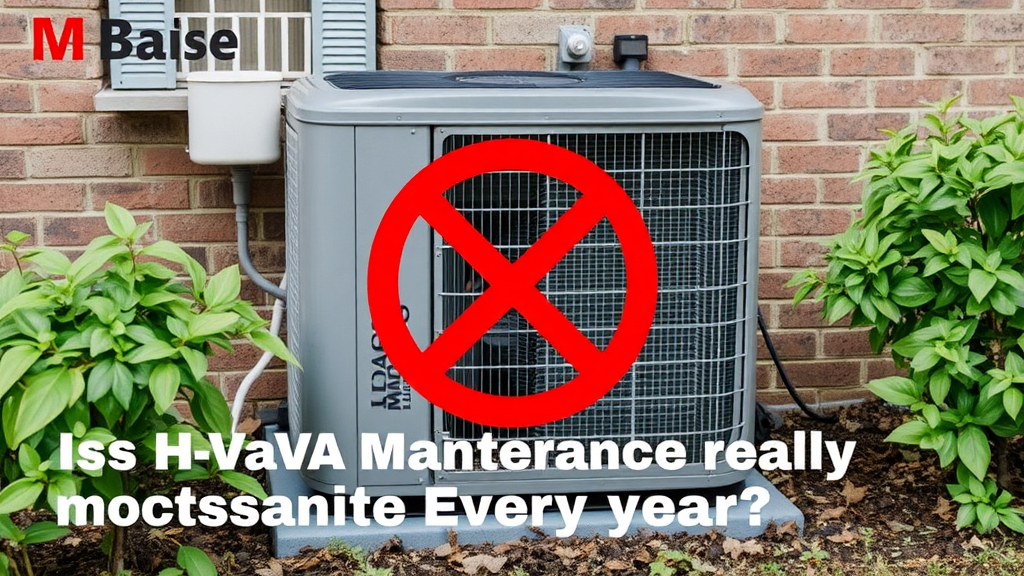
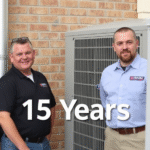
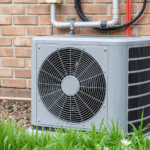
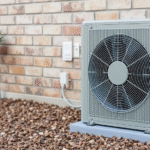

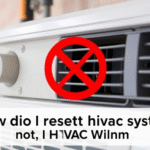
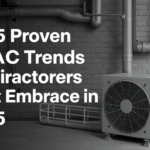
Leave a Reply